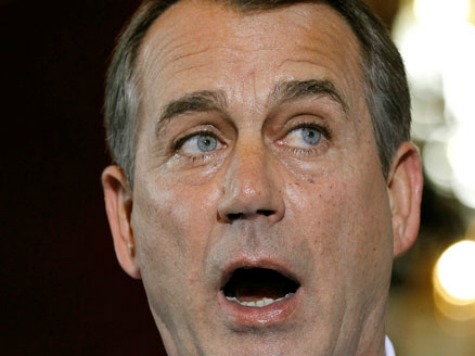
The DCCC, the campaign arm for Rep. Nancy Pelosi and House Democrats, has raised $22 million more than the House GOP for the fall elections. That result is surprising enough, as Democrats’ minority status gives them little political leverage in the House. More surprising, though, is that Democrats have raised almost three times as much money, $46 million v. $17 million, as Republicans from small-dollar grass roots donors. The political landscape and recent polling would suggest the opposite situation.
No serious political observers expect Republican control of the House to be challenged this November. Congressional redistricting after the 2010 midterms tilted the political map in favor of Republicans. Obama’s approval ratings flirt with post-war lows and polls indicate Republicans and conservatives are most enthused about voting this year. The House GOP, which is the center of Republican power in DC, isn’t reaping these benefits with small-dollar donors, however. These voters’ opposition to Obama and Democrat policies may be strong, but support for House Republicans is tepid.
Contributions from wealthy donors and special interests are greatly influenced by the political climate. Politico reports that some Republicans expect the fundraising gap to be partially offset by the support of cash-rich outside interest groups. With the Republicans overwhelmingly favored to retain control of the House, this isn’t unlikely.
Most political energy this fall will be devoted to the battle for the Senate, however. As a result, the House GOP’s struggle with small-dollar donors, i.e. base party voters, could cause them to fall short of their political opportunities.
Small-dollar donors don’t contribute based on political flow-charts in DC. Those contributing small amounts to the House Democrats may not understand that the party has little hope of reclaiming the majority, but financially support the caucus because it is in line with their priorities.
The DC GOP has been on a loud public campaign in support of policies like amnesty and corporate welfare that run counter to the beliefs of base voters. The party’s “strategists” have frequented talking-head shows to warn about “bad candidates” winning competitive primaries. Many still lament a government shutdown last year, which, although it has left almost no trace in polling results, haunts the dreams of DC’s political class.
The 2010 midterms generated an unprecedented political wave built on the votes of disaffected Republicans and Independents. It created an historic opportunity for the Republican party to channel voter anxiety over big government policies and craft a permanent majority. The House GOP was the tip of the transformative spear. Those who used to contribute small amounts to the Republicans will likely still cast their vote with them, but their energy and activism has been squandered.
If, in this political climate, the House GOP can’t overwhelm the Democrats among small-dollar donors, the party is simply a temporary opposition and not an enduring majority.

COMMENTS
Please let us know if you're having issues with commenting.